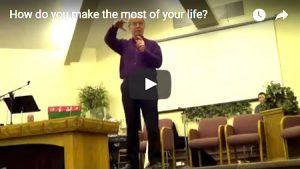Dear Friend,
 I asked several colleagues about this perspective of Paul’s journey. None of them had. Maybe you never contemplated the deeply depressive Shadow of Death that hung over Paul during his trip to Macedonia? He had left Antioch, not on the best of terms with his closest mentor. With Silas, a new Brother, he had started out for the south western part of Turkey, presumably to revisit the Seven Churches. But this second journey was tense with a great deal of frustration.
I asked several colleagues about this perspective of Paul’s journey. None of them had. Maybe you never contemplated the deeply depressive Shadow of Death that hung over Paul during his trip to Macedonia? He had left Antioch, not on the best of terms with his closest mentor. With Silas, a new Brother, he had started out for the south western part of Turkey, presumably to revisit the Seven Churches. But this second journey was tense with a great deal of frustration.
After traveling about 300 miles he had recruited Timothy at Derbe. That was a good decision but the means to the decision was controversial. Timothy was the son of Gentile/Jewish parents. It took a lot of time to work through the implications of that. They then changed original travel directions and headed northward. During this part of their journey Paul became physically ill (Galatians 4:13-14) After recuperation they journeyed to north western Turkey, but were forbidden by the Holy Spirit to speak the Word. They attempted to travel eastward toward Bithynia, but the Spirit of Jesus did not allow them. (Acts 16:6–7)
By now, two of them had traveled, mostly on foot nearly 1000 miles. A great deal of that trip was in frustration. A bad start, a controversial recruitment, physical illness, weariness of daily trudging, probably no supportive funding or prayer because they were forbidden to preach the Word, no spiritual fruit except in Galatia, uncertainty about which direction to move, whether northward or eastward, running out of places to go. In hindsight it is easy for me to spiritualize this trip, because I know the ending. But Paul didn’t know the ending. All he knew was the physical, emotional, mental obstacles; endless conversations with Silas and Timothy about what to do and which direction to go; and to reflect on the controversies left behind; to analyze the small amount of fruit and impact they had had; plus the never ending doubts about whether he had made the right decision to attempt this venture. How frustrating was that? Wasted resources… wasted time… wasted creativity… wasted dreams… wasted meetings… time wasted just sitting around doing nothing … burning up of patience… potential of unrest and internal distrust from Silas and Timothy plus the undermining of his integrity if word got back to the church in Antioch that had sent him. Nothing was happening and NO ONE seemed to care!
It was at that time that he received the Macedonian Call. We could capitalize on the positive effect of that but it didn’t start off all that well either. He was at a non-productive standstill in Troas when it came. And other than the positive spark of setting out on a new venture, and with an additional companion, Luke (conjectured to be the ‘man from Macedonia’), it wasn’t an easy ‘bed of flowers’. A boat ride of 70 miles of open sea, no ‘man from Macedonia’ to meet or welcome them in the port town, so they walked northward to an insignificant town called Philippi that aggressively advertised a ban on teaching new religions. Here they hung out for several more days of wondering. There was one reward in discovering a group of women who prayed alongside the creek outside town and who blessed them through Lydia’s acceptance of the Word. But there still was no ‘man’ from Macedonia to confirm their rightness in being there. Paul’s frustration continued to manifest when he spoke harshly to the demon in the slave girl. Over that incident they antagonized the populace and ended up in prison, not a promising step for ministry. In hindsight preachers focus on the positive aspects of that journey, but if Paul’s perspective is true, there are an overabundance of frustrations enroute. “When we came to Macedonia, we had no rest, but we were harassed at every turn–conflicts on the outside, fears within. But God, who comforts the downcast, comforted us …” (II Corinthians 7:5,6)
I see three significant steps of how Paul and companions dealt with their Shadow of Death:
- Identification – To be perfectly candid, I’m sure Paul had the same fears before starting this journey that most people encounter. The best way to obliterate dreams is procrastination. We just never “get around to doing it.” A second hurdle is self-doubt. With the major contention between him and Barnabas his self image could have easily slid into self-doubt. He could have succumbed to giving up. The best way to improve is to associate with people who believe in you and want you to succeed. He must have gotten lots of support from some portion of the Believers at Antioch. A third hurdle is worry about what people will think. Everyone has this fear, which means they’re more worried about what you think about them than they are about what they think of you. Your focus needs to be on your future and your connection with God and not on others.
- Interpretation – search for the core behind the vision rather than literal interpretation. Paul’s dream about the ‘man from Macedonia’ urged him to go west instead of east. He didn’t take the vision too literally when he found Lydia, a woman.
- Permission – Is there a disconnect between what I do, what others expect me to do, and what God intends for me to do? Does the tyranny of the present (not necessarily of the urgent) interrupt my calling? Accept your Father’s permission and release to drop the present hurdles to flow into the calling.
May you be blessed as one who is sent to people who feel abandoned, to take the peace that is within you and share it with them. (Isaiah 52:7)



